Strengthening Quaker Connections Through Education
Quakerism in Bolivia is notable, with the Indigenous Friends community as the third largest globally, about 30,000 members. They are dedicated to social justice and education, fostering ties with Quakers worldwide. Quaker values of peace, equality, and community service align closely with many indigenous Bolivian beliefs.
Indigenous peoples of Bolivia were systematically denied access to education until the mid-20th century. The landmark educational reforms initiated in 1952 began to dismantle these barriers, and Quaker organizations played a pivotal role by establishing some of the first schools that welcomed Aymara and Quechua students. These efforts were vital in promoting literacy and educational opportunities among indigenous populations.
Today, while public education is more accessible to indigenous Bolivians, challenges remain. The costs associated with transportation, food, school supplies, and housing, especially for those who must travel long distances to attend higher education institutions, are serious barriers. This economic burden makes it difficult for indigenous youth to pursue their educational aspirations.

Your donation makes a difference.
BQEF has helped over 250 students earn their professional and technical degrees. With your support, in 2025 we are providing workshops in Alternatives to Violence (AVP) for our current scholarship students. This is a collaboration with BQEF graduate and current PhD candidate in sociology, Magaly Quispe Yujra, Founder and Coordinator of PAV Bolivia (AVP Bolivia). We also plan on adding 10 additional scholarship students this year. Due to the on-going currency crisis in Bolivia, we have raised the annual cost for one scholarship from $850 - $1,000 year. All donations support our Scholarship Program, AVP workshops, and Visiting Scholars Program.
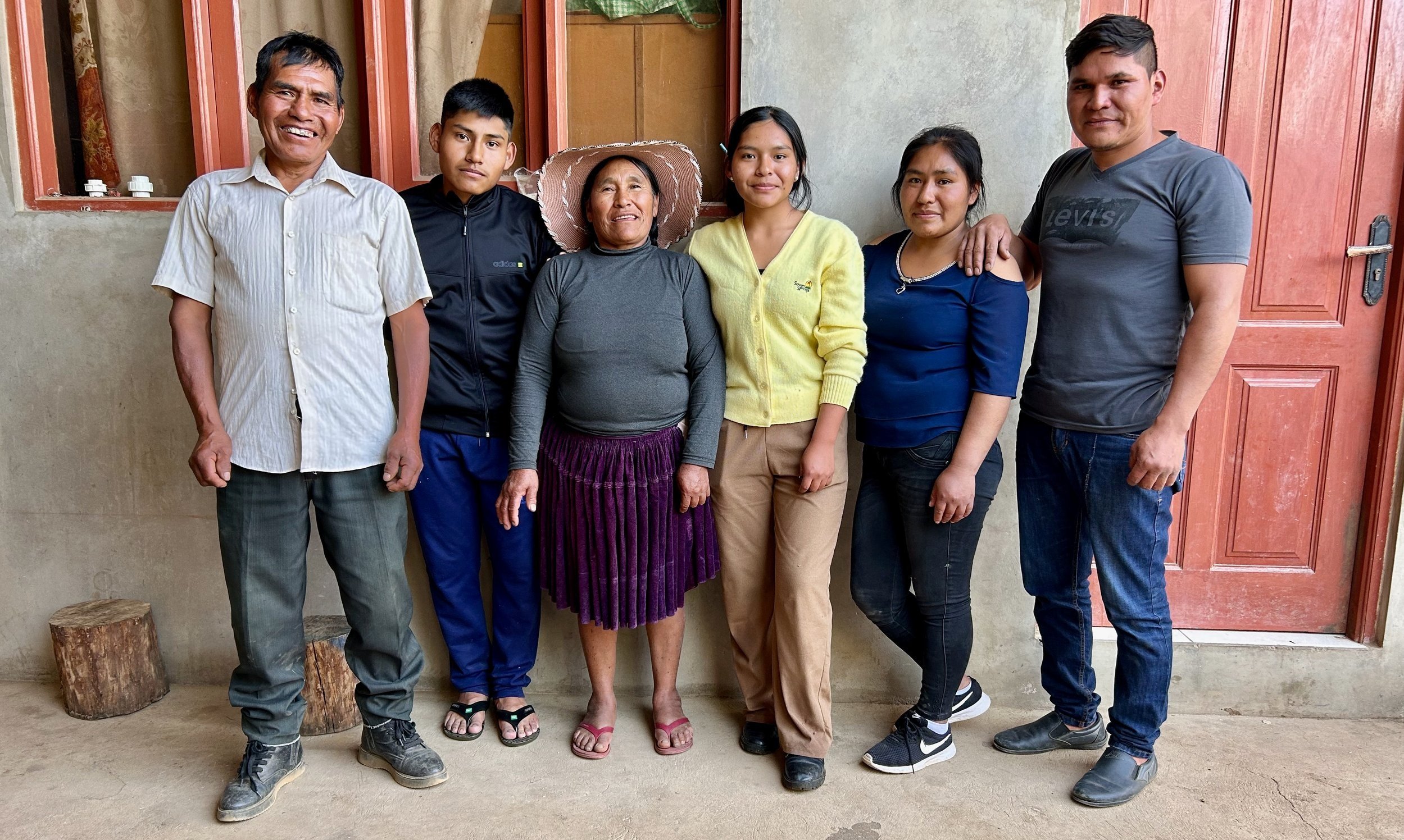
News
Bolivian Quakers’ Witness to Climate Crisis
Like many Bolivian young people, I feel grateful to have grown up among Indigenous people. They value the creation that gives them food, shelter, peace, and joy. Since I was a child, I have known that stones, mountains, rivers, plants, flowers, and animals are loved, respected, and honored by the local people, young and old, in our community… click to read more.
What did BQEF Scholars do during their vacation and what are their goals for 2025?
Gratitude and Reciprocity
“…in reciprocity, we can reclaim our sense of ourselves as givers, as well, as full participants in the flourishing of the world. And that’s joyful. It gives you a sense of kinship and purpose…”
- Practical Reverence, An Interview with Robin Wall Kimmerer, Emergence Magazine Podcast, 11/21/24.
Climate Change and Adaptation in Bolivia
Biologist Lucia Blanco, Environmental Engineer, BQEF Graduate Guido Quispe, and current BQEF scholar of Animal Husbandry Isabel Rojas engage in a thoughtful discussion regarding the various causes and significant consequences of Climate Change in Bolivia.
Quaker Study Tour 2024
Guided by Jennie Ratcliffe’s book Nothing Lowly in the Universe, a diverse group of Quakers, hailing from Alaska to Boston, ages 21 to 74, traveled through Bolivia accompanied by scholars and graduates from BQEF’s scholarship program. We explored the theme of climate change and adaptation, as we visited a wide variety of ecosystems, landscapes, and Aymara communities. Another truly amazing outcome of the trip was the connections we made with one another and with our current and former scholarship students. We learned about our current scholarship students’ dreams for the future and we met with several graduates who have gone on to do amazing work in their fields.
Hermano Bernabé
From 2003 to 2023, Bernabé supported 223 young Quaker Friends in achieving their educational goals, graduating from the university, and becoming professionals.
Graduate Spotlight
Veterinarian in training, Rossio Aspi Cortez, former BQEF graduate.
Jens Braun
Jens Braun teaching the first Alternatives to Violence Workshop in Bolivia with BQEF Students.
Student Concerns over Climate Change
Climate Change is an Immediate Challenge to Many of Our Students. Their Letters to Sponsors Reflect their Concerns.





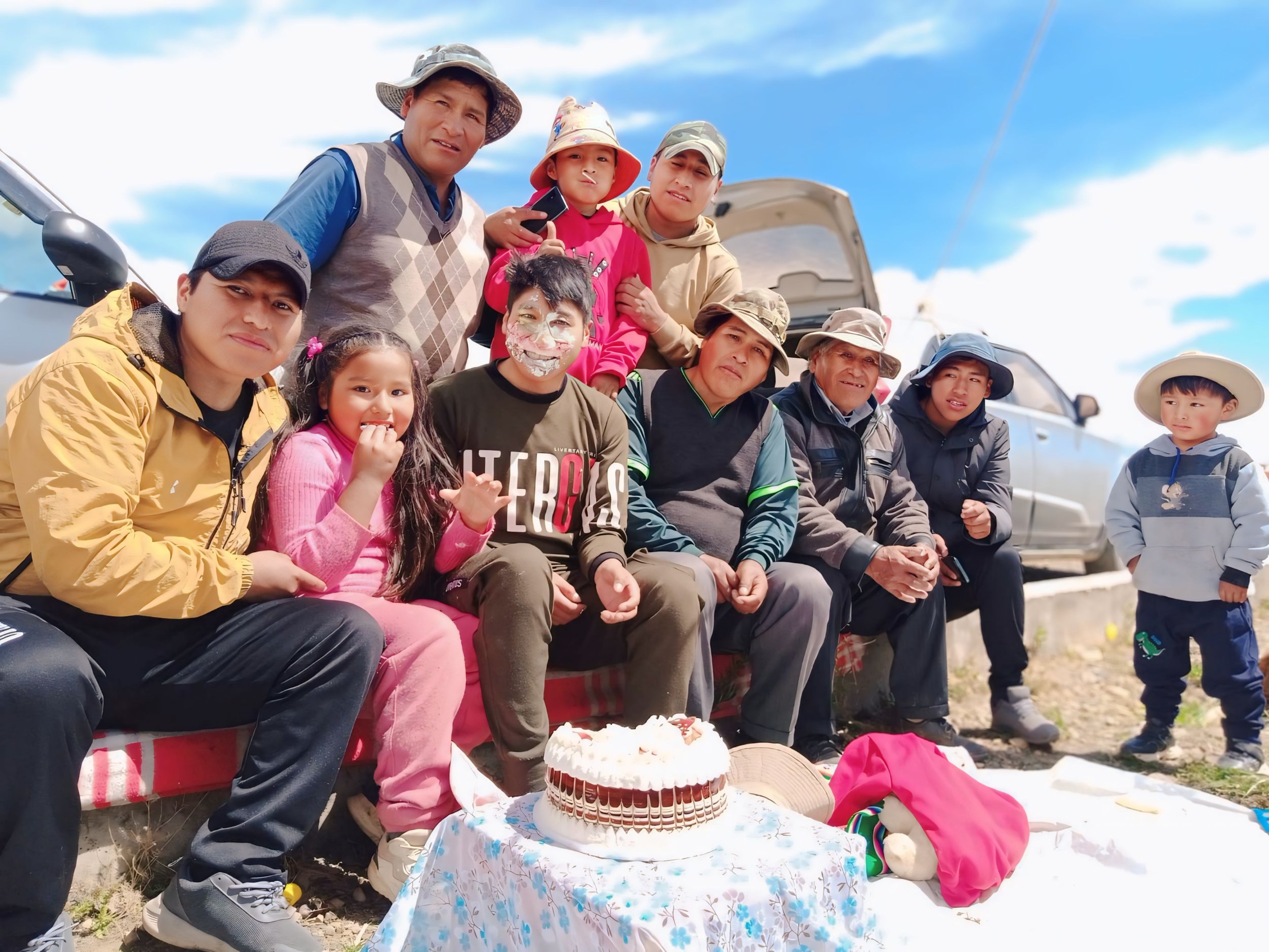

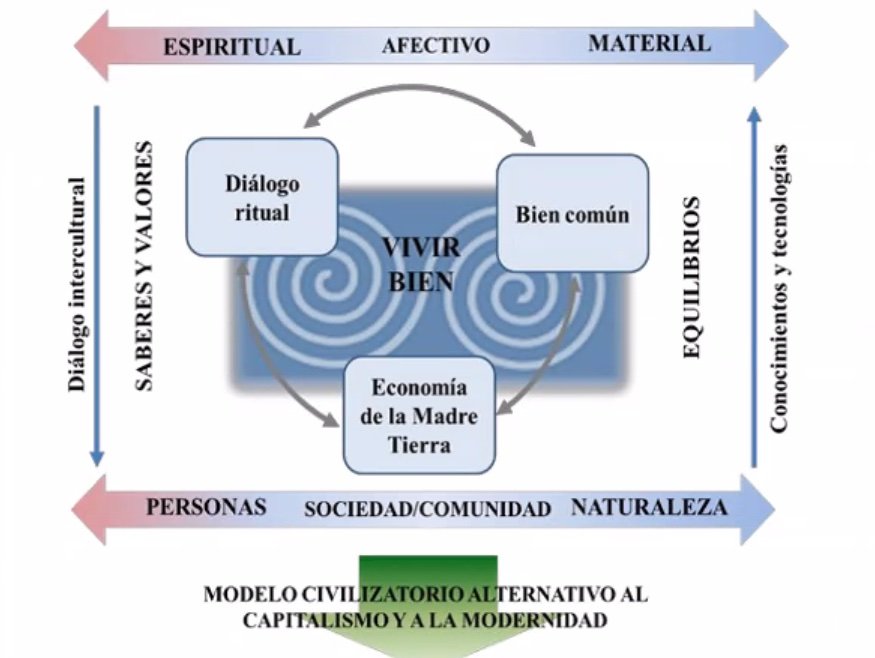
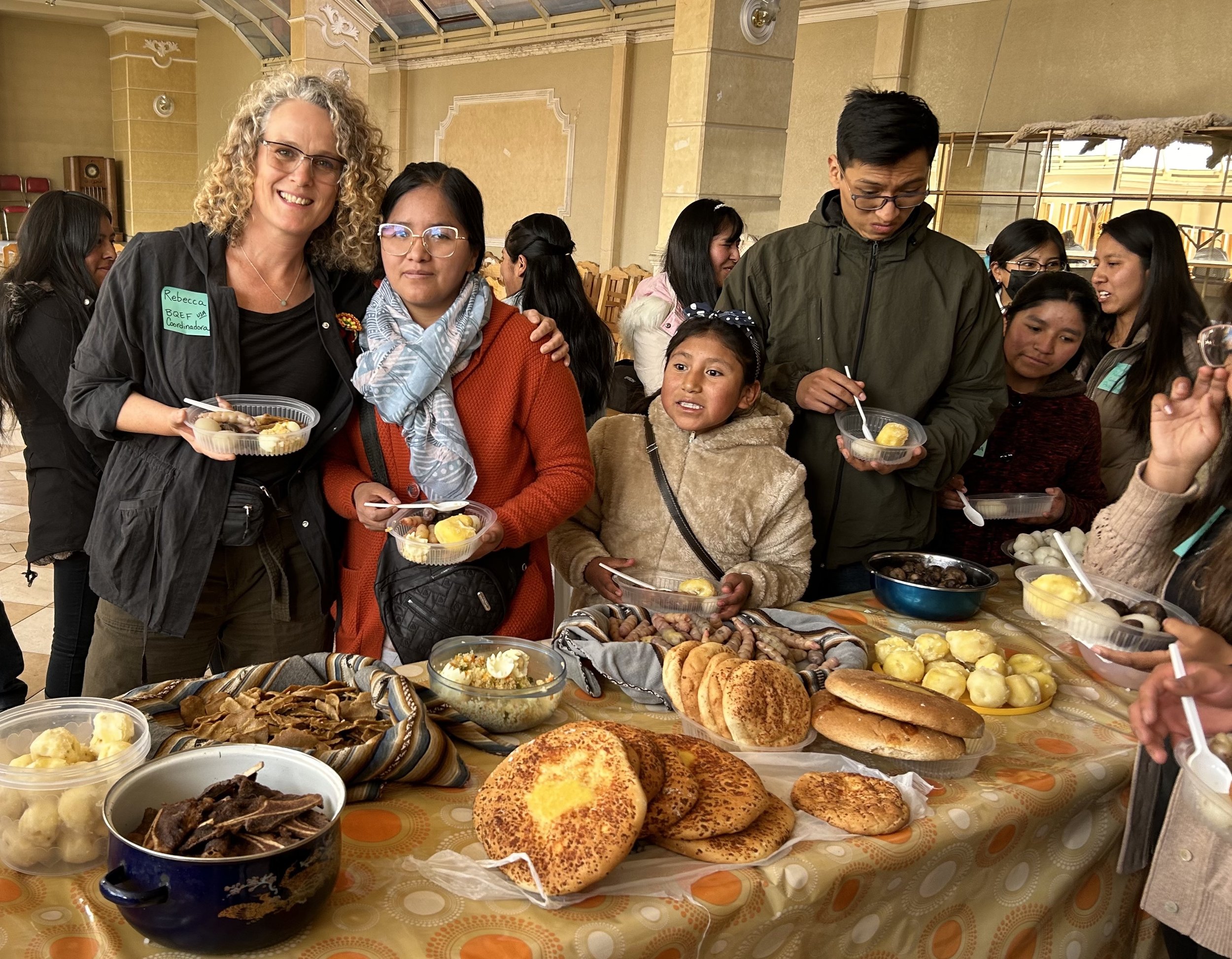
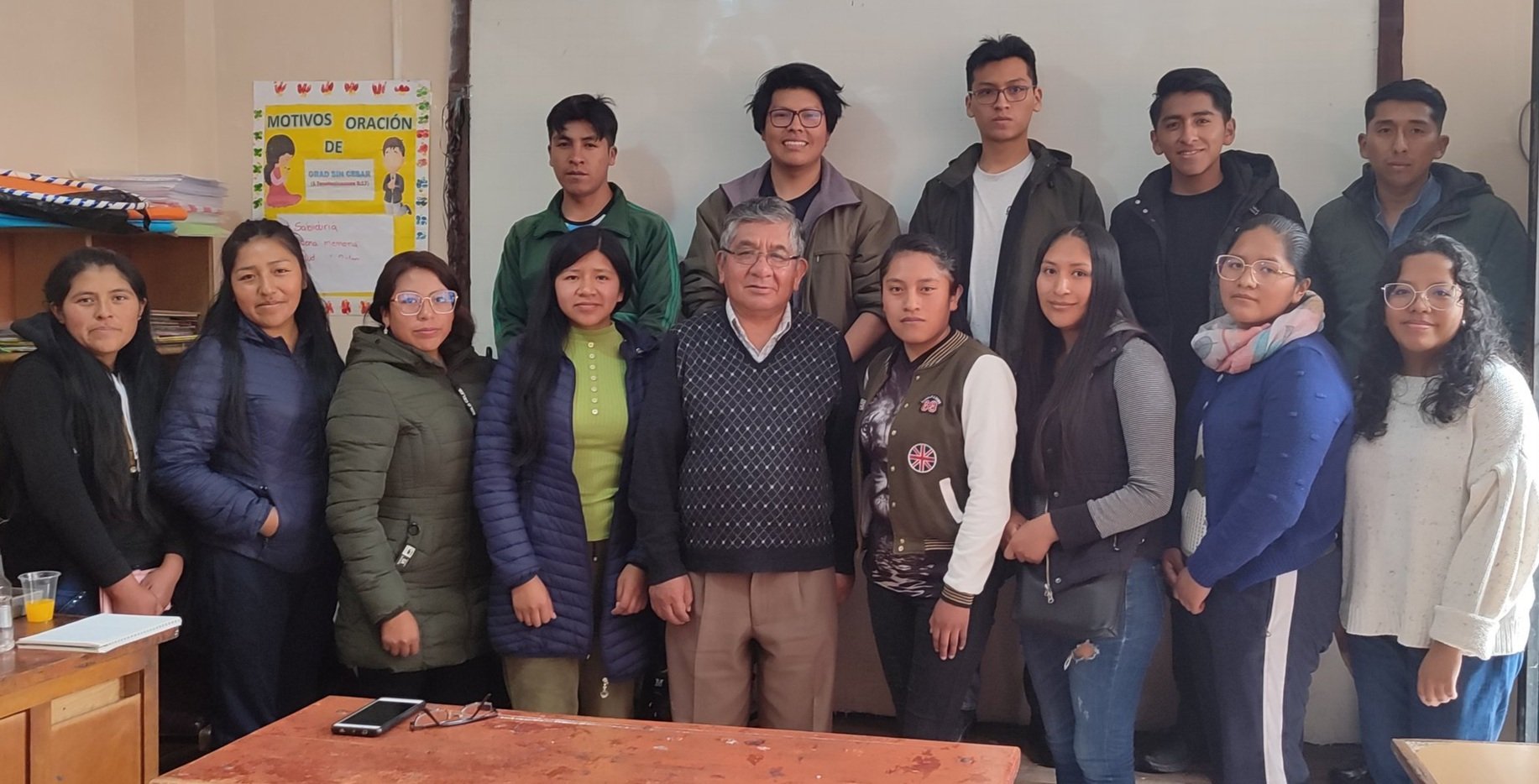
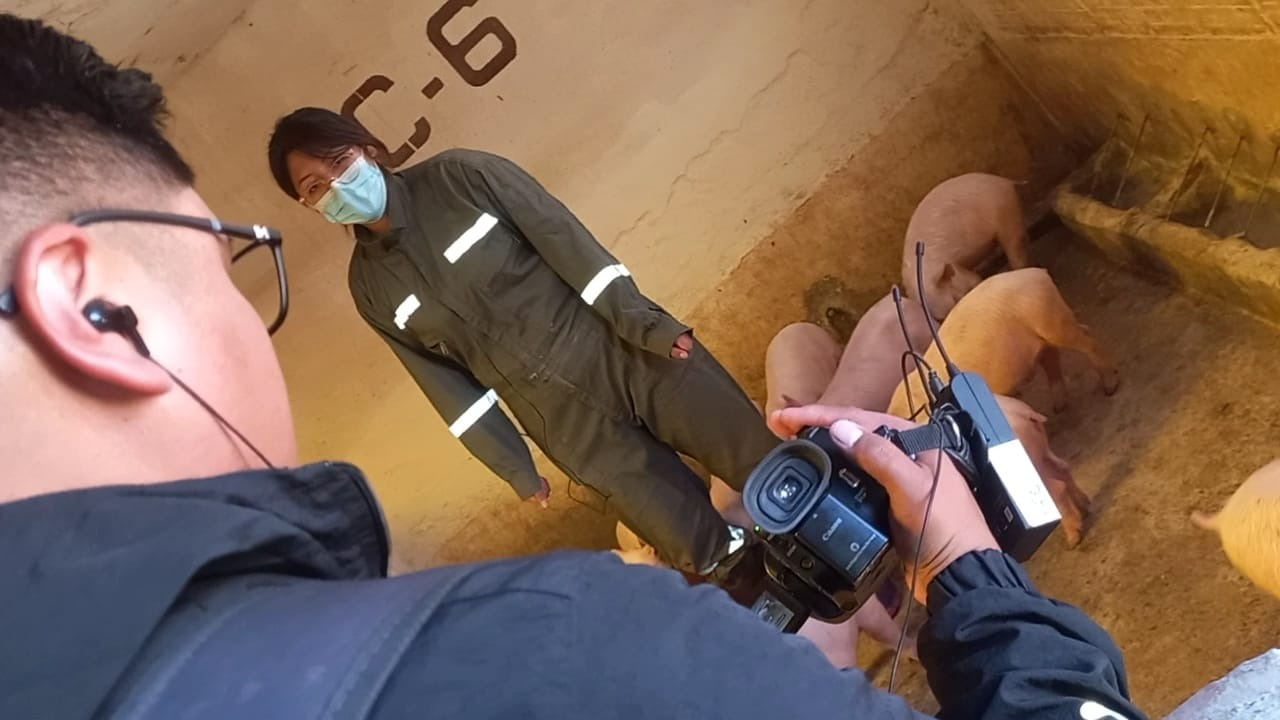
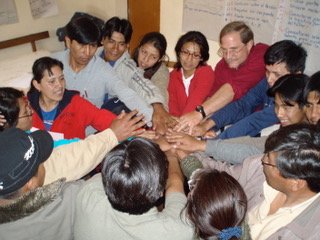
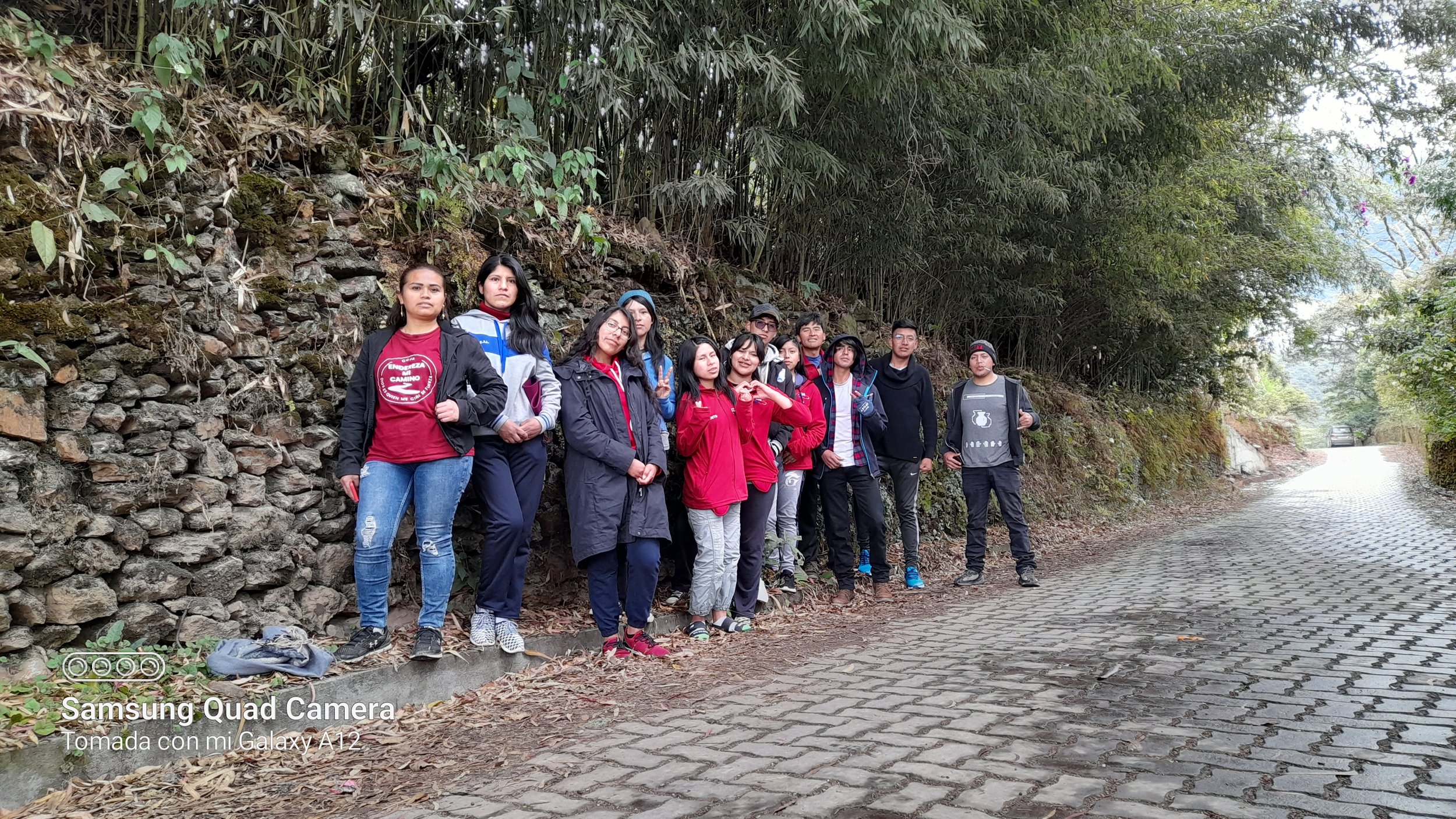

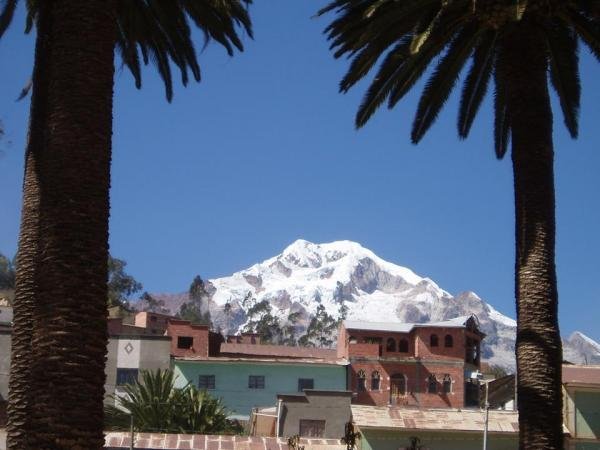
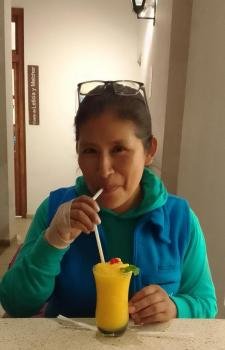
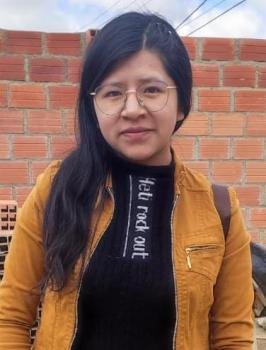
“ La educación es la llave que abre las puertas del futuro; cada lección aprendida es un paso hacia los sueños que deseas alcanzar.”